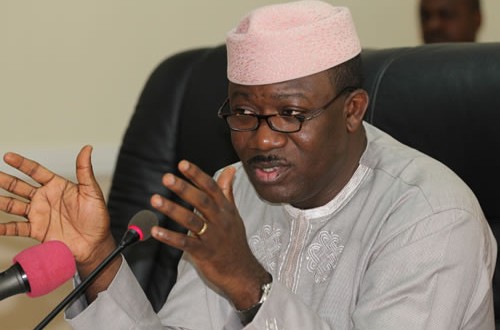Minister of Solid Minerals Kayode Fayemi has said that the federal government will revive the mining sector so that its N400 billion contribution to the Gross Domestic Product (GDP) will increase and also create over one million jobs for Nigeria’s unemployed youths.
Fayemi made this statement during the ministry’s inaugural media conference in Abuja. He said “Today, we have at least 44 known mineral assets that include precious minerals, base metals, bulk minerals and what are known as rare earth minerals.
“We have reasons to believe that available data of our reserves understates what the almighty God has blessed our country with many cases. We have barely updated some of the geosciences data collected 50 years ago or earlier. So, we are cautiously optimistic that our mining endowments actually exceed what is currently stated.
“That said, based on current data, Nigeria’s solid minerals sector makes up about 0.34 per cent of Gross Domestic Product (GDP). That means based on current official exchange rates, the mining sector contributes N400 billion in value to the economy.
“While that is a significant role, it is smaller than its true potential as the vast majority of our mining assets are yet to be exploited. In fact, what has been happening is that the sector has more or less been operating sharply below capacity, with many mining operations manned by small-scale artisanal miners, as opposed to the large-scale players.
“We will work with stakeholders to review existing licences and bring them up to date where there are issues. Our goal is to get licensees, who are sitting on the fence to have sufficient confidence to start investing real capital.
“That said, starting March 1, 2016, we will start enforcing the “use it or lose it” doctrine enshrined in the Nigerian Minerals and Mining Act, 2007. The period from today to March 1, 2016, should be considered an amnesty period to allow regularisation of papers.”
On job creation, he said “I can tell you that the solid minerals sector is one that can provide at least a million direct jobs and much more than that in indirect jobs with people working in the mines and associated sectors like construction. We know that we can do it, but we need to formalise the jobs and we need to ensure that we bring them into the economy so that it can serve our nation better.
“We have commenced discussions with the World Bank once again and the bank is desirous of supporting the sector. We need to be ready, we ought to show commitment ourselves as a government and that way, it will be easier for us to receive support from a whole range of players.
“If we deliver on this vision, then we can build a mining sector that Nigerians can be proud of in 30 years or more from now. This sector should deliver double digit growth over the next decade, with important direct and indirect economic impacts on households.
“We will focus on supporting and growing Nigeria’s position in mineral assets with commercially proven reserves. Our assets will then be used to serve two key markets: a domestic industrialisation market that is more benefaction focused and an export market that is more focused initially on the export of ores and raw materials.
“The mix of investors that will target Nigeria will reflect that preference of serving both the domestic and export markets. We anticipate that as we expand our geosciences databases and insights, we will also expand what minerals we compete in.”

